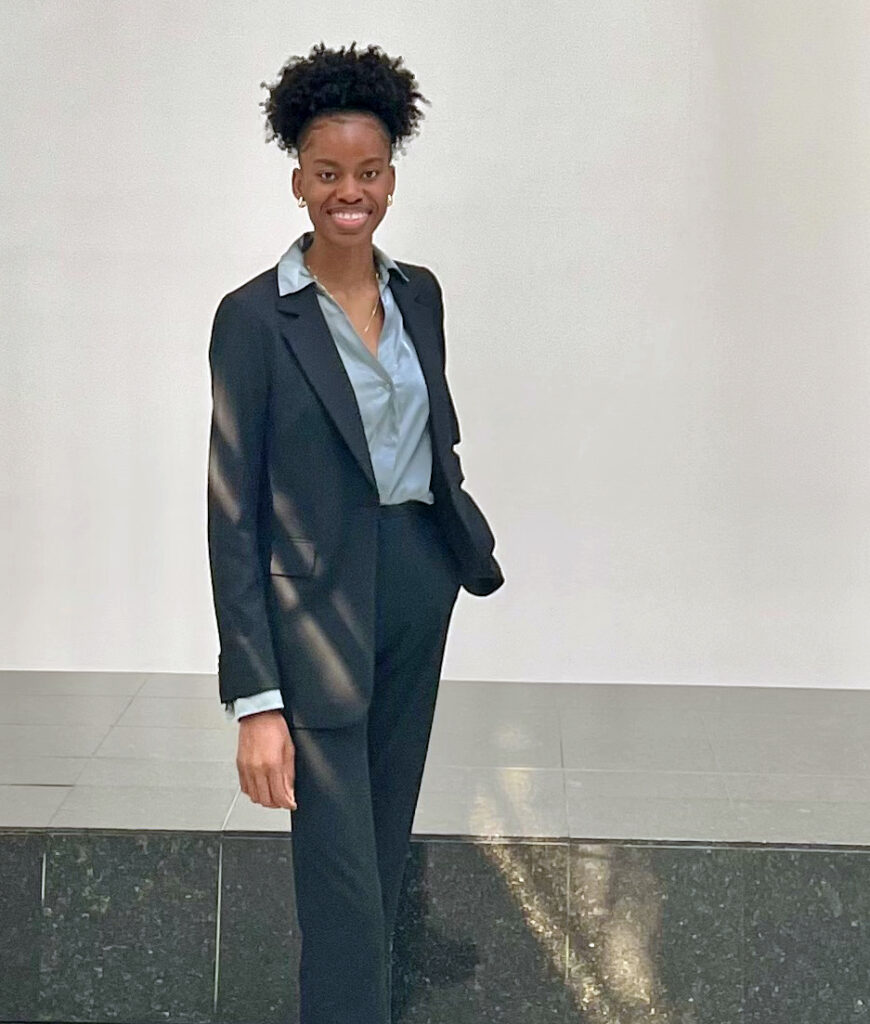Pinnacle Q&A: Medjina Milfort, the 2024 Metropolitan Campus Pinnacle
By Kenna Caprio
April 29, 2024 — After she serves as one of this year’s student speakers at Commencement, Medjina Milfort will continue her education at FDU, pursuing her master’s degree in criminal justice. Eventually, she plans to work in community corrections, which includes probation and parole. Milfort also wants to teach criminal justice at the college level.

FDU: Why did you decide to study criminal justice? Can you share a particularly challenging academic project or assignment that taught you a valuable lesson?
MM: I chose to study criminal justice because of my love for TV crime series! But the more I learned about the injustices and flaws in the system — disadvantaged populations can face disparities in sentencing, negative relationships or encounters with system officials, and much more — the more I wanted to work in it to make it better, fairer and to help people successfully reintegrate following incarceration.
Research Methods and Statistics with Douglas Evans, associate professor of criminal justice, was a challenging course. The class conducted research with Professor Evans, including interviews. I often struggle with interviewing and connecting with new people, but this class pushed me. Doing an interview allowed to me learn more about the effects the system has on people during and after incarceration.
FDU: Which college experience do you treasure the most?
MM: Being a resident assistant (RA) is my most treasured college experience. This role got me out of my comfort zone and pushed me to get involved on campus. I built a lot of connections with fellow students, faculty, and staff as an RA. This also gave me the opportunity to be a resource to other students, as well as advocate for students.
FDU: What was a defining moment for you?
MM: Being a graduate hall director helped me discover my passion for creating a safe living environment for students and being a support system for them.
FDU: What’s your biggest, shoot-for-the-moon dream?
MM: Being a criminal justice system policymaker who works to change the system from punitive to rehabilitative. I also want to help create an impartial justice system where the process remains the same regardless of one’s race. There is a huge discrepancy in how the law is applied to different groups of people. For instance, research shows that people are more likely to receive the death penalty if the victim is white compared to if the victim is black. Additionally, minority offenders receive harsher punishments than white people for the same offense. I want to help build a system where the law is applied fairly despite one’s racial background.
FDU: What is your FDU legacy?
MM: My legacy is prioritizing a safe learning and living environment for students. I have advocated on students’ behalf to improve campus resources through various organizations such as the Residence Hall Association (RHA) and the Student Bill of Rights Task Force. As president of RHA, I advocated for the improvement of dining services and other facilities-related concerns.